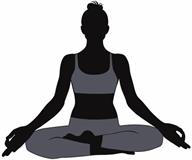Managing Post-Traumatic Stress Disorder
If you have been diagnosed with post-traumatic stress disorder (PTSD), you may be relieved that you now know why you have felt or behaved a certain way. Still, you may feel overwhelmed and concerned for your future.
With the right treatment and support, you can live your life with fewer symptoms.
What actions can I take to manage PTSD?
Manage stress

Stress is your body's reaction to life changes and events, both good and bad. Stress can make PTSD worse. Take the following steps to manage stress:
- Talk with your health care provider or a counselor about ways to lower your stress. These may include:
Physical exercise.
Meditation, yoga, or other mind–body exercises.
Exercises to relax your muscles.
Breathing exercises.
Listening to quiet music.
Spending time outside.
Eat a healthy diet.
Get plenty of sleep.
Take time to relax.
Spend time with others. Talk with them about how you are feeling and what you need.
Do activities that you enjoy.
Have a schedule and take regular breaks.
Take your medicines
Symptoms of PTSD can make you feel depressed and anxious. They can also disrupt reality. Medicines can help lessen symptoms and make you feel better. It is important to:
Talk with your pharmacist or health care provider about all medicines you take. Talk about the side effects. Discuss which medicines are safe to take together.
Be involved in your care. Decide on the best treatment plan with your health care provider.
Be aware that if you decide to take medicine, it can take 4–8 weeks before you notice a difference in your symptoms.
Talk to your health care provider before stopping medicines.
Stay close to family and friends
PTSD can affect relationships. Make an effort to:
Trust your friends and loved ones. Trusting others can help you feel safe and connect you with emotional support.
Be open and honest about your feelings.
Have fun and relax in safe spaces, such as with friends and family.
Think about going to couples counseling, family education classes, or family therapy. Therapy can be helpful for everyone.
Talk with friends and family about how they can best support you.
What are signs that my condition is getting worse?
Be aware of your symptoms and how often you have them. The following symptoms mean that you may need additional help:
You feel suspicious and angry.
You have repeated flashbacks.
You avoid going out or being with others.
You have more fights with close friends or family members.
You have thoughts about hurting yourself or others.
You cannot get relief from feelings of depression or anxiety.
Follow these instructions at home:
Lifestyle
-
Exercise at least 30 minutes a few times a week.
- Try to get 7–9 hours of sleep each night. To help with sleep:
Keep your bedroom cool and dark.
Do not eat a heavy meal within 1 hour of bedtime.
Avoid caffeine for at least 8 hours before bed.
Avoid screen time before bed. This includes television, computers, tablets, and mobile phones.
-
Try to have fun and find humor in your life.
-
Eat a healthy diet.
-
Write your thoughts and feelings down in a journal or on a tablet or mobile phone.
General instructions
-
Take over-the-counter and prescription medicines only as told by your health care provider.
-
Do not useillegal drugs.
-
Know and remember that healing from trauma takes time.
-
Keep your health care team up to date about your PTSD symptoms and treatment.
Alcohol use
-
Do not drink alcohol if:
Your health care provider tells you not to drink.
You are pregnant, may be pregnant, or are planning to become pregnant.
- If you drink alcohol:
- Limit how much you have to:
Know how much alcohol is in your drink. In the U.S., one drink equals one 12 oz bottle of beer (355 mL), one 5 oz glass of wine (148 mL), or one 1½ oz glass of hard liquor (44 mL).
For more information about PTSD, treatment, and how to get support, go to:
Contact a health care provider if:
-
Your symptoms get worse or do not get better.
-
You have trouble doing daily tasks.
-
You have loss of appetite.
-
You have trouble sleeping.
Get help right away if you feel like you may hurt yourself or others, or have thoughts about taking your own life. Go to your nearest emergency room or:
Summary
-
With the right treatment and support, you can live your life with fewer symptoms.
-
Find supportive people and settings. Spend time in those places. Keep in contact with those people.
-
Work with your health care team to create a plan to manage the symptoms of PTSD. The plan should include counseling, good habits, and techniques to reduce stress.
This information is not intended to replace advice given to you by your health care provider. Make sure you discuss any questions you have with your health care provider.
 Stress is your body's reaction to life changes and events, both good and bad. Stress can make PTSD worse. Take the following steps to manage stress:
Stress is your body's reaction to life changes and events, both good and bad. Stress can make PTSD worse. Take the following steps to manage stress: